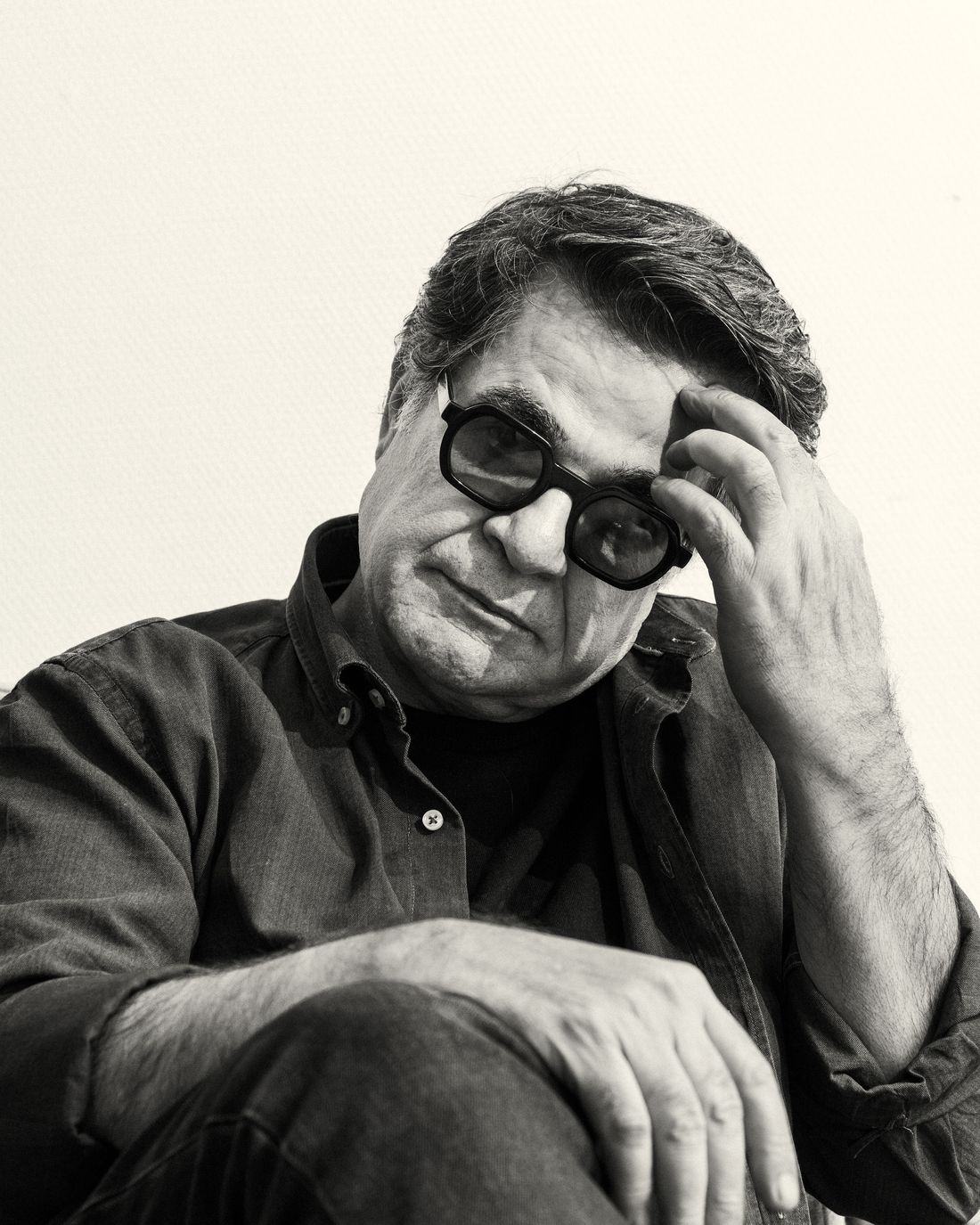
In March 2010, Iranian filmmaker Jafar Panahi was arrested for the third time, along with his wife, daughter, and fifteen friends. He and fellow director Mohammad Rasoulof had been secretly filming a movie at Panahi’s home. The film, in Panahi’s realistic style, explored how the controversial re-election of President Ahmadinejad and the resulting protests affected several generations of a single family. Knowing the Iranian government would likely censor the film—they routinely review scripts and deny permits for disapproved content—they filmed in secret. They had completed almost 30% of the project when word leaked out, leading to a raid on Panahi’s apartment. As Panahi explains, they simply lacked the experience to keep the project hidden.
I met with Jafar Panahi, 65, at the Reign restaurant in Toronto’s Fairmont Royal York hotel. Sheida Dayani, a theater historian and professor, was there to translate for him during his press tour for his new film, *It Was Just an Accident*. The film was secretly shot over 25 days in Tehran, and he’s become quite skilled at working discreetly. He arrived dressed in his typical style: dark sunglasses, a black polo shirt, and an army-green jacket, with a faint smell of cigarettes – he smokes about three packs a day. His voice is deep and resonant. He wasn’t feeling his best and was drinking hot water with honey instead of his usual Persian remedy, rock candy. We met just hours before the film’s premiere at the Toronto Film Festival, which was the sixth stop on a world tour that began at Cannes in late May, where *It Was Just an Accident* won the Palme d’Or. This award put him in an exclusive group of filmmakers – only three others, Henri-Georges Clouzot, Michelangelo Antonioni, and Robert Altman – have won the top prize at Cannes, Venice, and Berlin.
Jafar Panahi’s life and career dramatically changed after his 2010 imprisonment. Unlike others who were released quickly, he spent nearly three months in Evin Prison, known for holding political prisoners in Iran. Though released, he received a six-year sentence that could be enforced at any time and was prohibited from leaving the country, giving interviews, or filmmaking – restrictions that were eventually lifted in 2022. Since then, a form of confinement has become his reality, but it has also fueled a remarkably productive period in his career, resulting in five interconnected films. His first film, *This Is Not a Film* (2011), was both a playful statement and a preview of his future work, which often blurs the line between fiction and reality. Panahi frequently appears as himself in these films, portraying his experiences under house arrest (*This Is Not a Film*) or working as a taxi driver and filming his passengers (*Taxi*, 2015). Jamsheed Akrami, a friend and colleague, describes Panahi’s self-portrayals as a defiant act, a way of “traveling” creatively despite being physically restricted. It was, Akrami explains, a “cinematic selfie” – a response to the regime’s limitations.
In *It Was Just an Accident*, director Panahi returns to a more conventional storytelling style. The film is a tense and darkly humorous revenge drama about a group of Iranians who think they’ve found the man responsible for torturing them in prison, and their deliberations about whether to take justice into their own hands. It’s a thrilling film, notable for its long, unbroken shots where characters grapple with the morality of violence and what principles are worth defending. The film feels particularly resonant now, as Americans are beginning to confront a disrupted reality, while Iranians have been living under such conditions for decades, since the 1979 revolution ushered in a strict and censoring government. Constant surveillance and political repression are realities of life, and Panahi uniquely understands the profound psychological impact of imprisonment. He explains that during his own 2010 imprisonment, he endured prolonged isolation, including being forced to stand naked in the cold and being subjected to intense, pressured interrogations where he was blindfolded and forced to answer questions at an increasingly rapid pace. Panahi speaks calmly about these experiences, but suddenly pauses, seemingly overwhelmed.
“Why do you need to know these things?” he asked, clearly annoyed. “They don’t really have anything to do with the movie, and it feels like you’re questioning me again.” I pointed out that his own life and the experiences of his characters seemed connected to the film’s themes. But Panahi maintained the film wasn’t based on personal experience; it was inspired by stories he heard from other prisoners while he was held in Evin prison. He also seemed increasingly frustrated, his eyes constantly scanning the restaurant. This was Panahi’s first press tour in fifteen years, and the attention felt somewhat superficial. The film’s distributor, Neon—the studio behind last year’s Best Picture winner, *Anora*—is hoping to get *It Was Just an Accident* nominated for an Oscar. Iran didn’t submit the film for consideration, but France did. Panahi finished editing and adding visual effects in Paris, where he spends part of the year, making it eligible as France’s official submission, even over films by established directors like Richard Linklater and his *Nouvelle Vague*.
We are worlds away from the life Panahi has known for over a decade. After finishing his film, he says he’ll have to “talk nonsense”—a playful way of admitting he doesn’t know what to say. He’s a witty, sarcastic, and unpredictable person—you never quite know where his thoughts will lead. When asked if he was afraid making his film, he responds by asking what more the government could *do* to him—they’ve already banned him from leaving Iran and imprisoned him. He feels trapped, unable to leave, and grows restless when away from home. He acknowledges his fame offers some protection—any harm to him would draw international attention. With each film, he’s challenging the government. He almost seems to dare them to ban him again, even admitting he’d welcome it as an excuse to focus on his work. He jokingly suggests there should be a movement where governments ban filmmakers from giving interviews, forcing them to create instead.
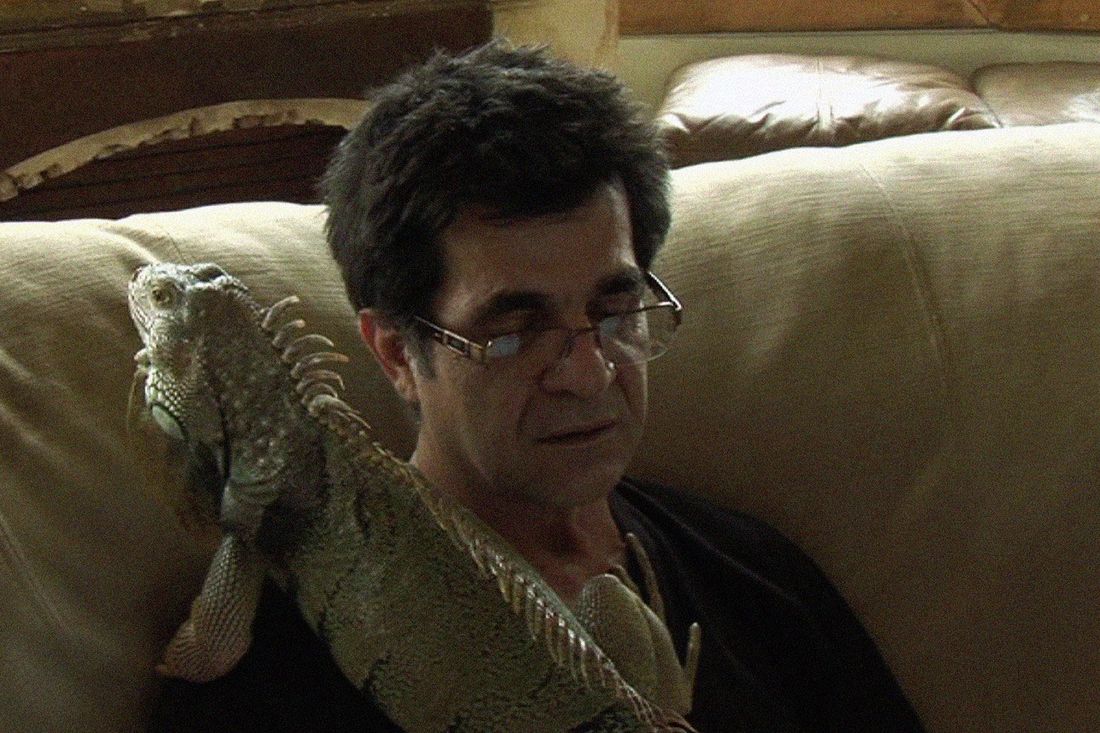
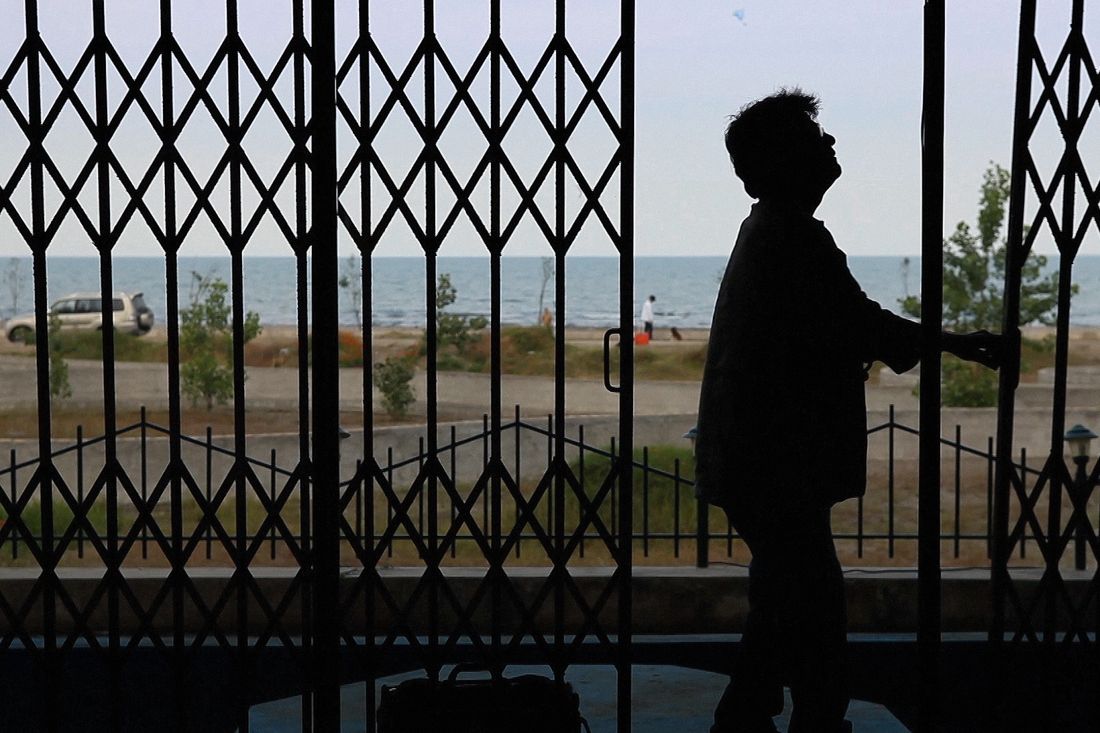
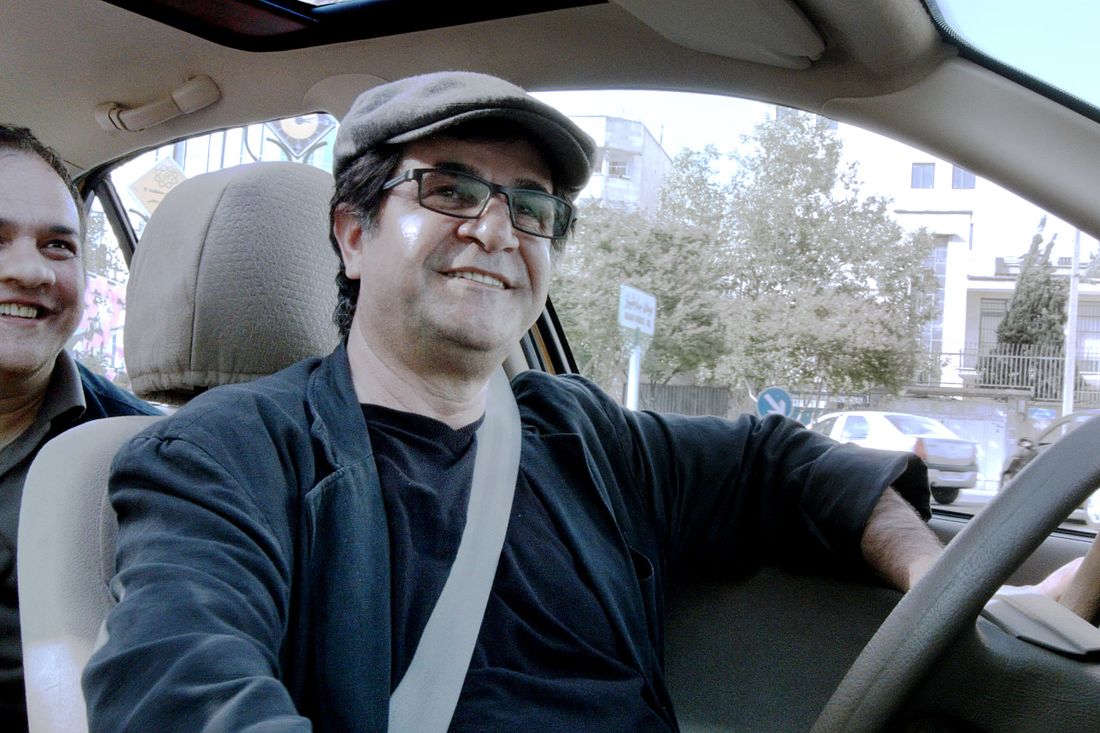
Jafar Panahi had a working-class upbringing in southern Tehran, as one of seven children. He first became aware of social issues in elementary school when his teacher, Mr. Kalantari, expected students to bribe him with a few coins to get a good grade. Panahi recalls that if they didn’t pay, their grades would suffer. This small act of corruption stayed with him as a betrayal of trust by an adult who should have been looking out for his students.
As a child around ten years old, he appeared in a short film with Kanoon, an arts education program, and became fascinated by the camera. He recalls the cinematographer wouldn’t let him look through it at the time. Later, he saved his money to buy his own camera, which he says transformed the way he saw the world. His father, a painter, loved movies but only allowed him to watch films he considered appropriate. Despite this, Panahi would sneak off to see others. To earn money, he made and sold drinks at soccer games and helped his father with painting jobs. He would save his earnings, skip school, and sometimes end up watching the same movies as his father without him knowing.
Jafar Panahi’s final year of high school overlapped with the Iranian Revolution, a popular uprising against the Shah, Mohammad Reza Pahlavi, who was supported by the United States. Life under the Shah had been difficult for many Iranians, with economic hardship and increasing restrictions on personal freedoms. Panahi and his fellow students were among the first at their school to take to the streets in protest. He recalls widespread involvement across the political spectrum, with people hoping for a more democratic government. Sadly, those hopes weren’t realized. Instead, the revolution led to a new government that imposed strict rules, including requiring women to wear the hijab in public, separating men and women in public spaces, and granting men significant power within marriage and the home.
Following the revolution, Panahi was required to join the military. While in training, he and his companions were captured by Kurdish rebels and held for around 80 days. Panahi explained that he hadn’t volunteered for military service – it was compulsory – and began a hunger strike. His fellow prisoners helped him continue the strike by advising him to drink a small cup of very sweet tea each day. After about six days, the rebels released Panahi and his friends.
During his military service, Panahi filmed the Iran-Iraq War on the southern front, creating documentaries that were broadcast on Iranian television in Kurdistan. Even as a film student, he started pushing creative limits. For his first project at Tehran’s College of Cinema and Television, he convinced the faculty to let him use three cameras for three days – a much shorter loan period than the usual one camera for ten days – allowing him to capture more footage. The result was a 30-minute documentary called *The Wounded Heads*, which followed a group of Shi’a Muslims from Azerbaijan who self-flagellated while mourning Imam Hossein during Ashura. Panahi explains that the government disapproved of these ceremonies, motivating him to document them. He simply wanted to record what he witnessed. His education was funded by the government with the understanding he’d work for state TV afterward. This allowed him to understand how the system operated while also pursuing his own films and gaining experience assisting filmmakers like Abbas Kiarostami, a key figure in Iran’s New Wave cinema and a mentor to Panahi, who was known for his innovative filmmaking style.
Iranian cinema has a rich history spanning almost a century, and filmmakers have consistently used their work to comment on society. During the rule of the Shah, directors often used symbolism and allegory to express their views, as seen in Dariush Mehrjui’s influential 1969 film, *The Cow*, which portrays a villager’s descent into madness after the death of his cow. The film was banned due to its realistic depiction of rural hardship. According to Akrami, censorship under the Shah was primarily political, and after the 1979 revolution, religious restrictions were added to the existing political controls. Following the revolution, directors like Kiarostami, Mohsen Makhmalbaf, and Majid Majidi continued to address social issues – including Iran’s economy, gender inequality, and religious complexities – through their films.
Filmmakers Kiarostami and Panahi cleverly used children as the central characters in their films to explore difficult social issues with a fresh, innocent viewpoint. Kiarostami’s ‘Koker’ trilogy centers on a boy returning a notebook, which leads to stories about poverty, societal expectations, and community strength. Panahi’s debut film, *The White Balloon*, followed this approach, depicting two siblings trying to buy a goldfish for the New Year and highlighting economic struggles. Kiarostami wrote the screenplay for *The White Balloon*, while Panahi directed it, earning the Golden Camera award at the 1995 Cannes Film Festival for best first feature. Panahi’s next film, *The Mirror* (1997), which he also wrote, continued this style, featuring a child protagonist and a moment where the film acknowledges the audience directly.
Jafar Panahi’s earlier films were generally considered mild and uncontroversial, so his 2000 film, *The Circle*, represented a significant change in direction. The film was inspired by a tragic news story about a woman who killed her children and then herself, and Panahi was deeply affected by the desperation that drove her to it. He explains that when depicting Iranian life, it’s impossible to overlook the limitations placed on women. In the late 1990s and early 2000s, more women were attending university at rates comparable to men, and they were key participants in the 1999 student protests in Tehran. These protests began after a reformist newspaper was shut down and escalated following a violent crackdown on a university dormitory. Panahi’s script for *The Circle* faced censorship, but it was eventually approved thanks to support from reformist newspapers.
The finished movie was a carefully made story about Iranian society’s focus on men, showing the difficult and degrading experiences of several women as they dealt with their families, people they didn’t know, and the police. According to Akrami, Panahi’s film, *The Circle*, marked a significant change in his work. He says Panahi’s style became more daring and somber. After completing the film, the Iranian government prohibited it from being shown. Panahi himself referred to it as his “first film.”
Jafar Panahi’s 2000 film, *The Circle*, marked the beginning of a series of critical films he made about Iranian society. These included *Crimson Gold* (2003), a story about a veteran who robs a jewelry store, and *Offside* (2006), which follows young women trying to attend a soccer match. Both *Crimson Gold* and *Offside* were banned in Iran, and Panahi faced arrest and questioning after *Crimson Gold* gained recognition at the Cannes Film Festival, straining his relationship with the government. He stopped seeking official approval and, like other emerging filmmakers, began working outside the system. He’d submit one script to censors while secretly filming a different version, then quickly send the finished film to international festivals. This became known as Iran’s “parallel cinema.” According to film critic Akrami, these unauthorized films are the only Iranian movies shown at international festivals, as those approved by the government rarely receive such recognition. For awards like the Oscars, Iran typically submits films that present a positive or neutral view of the country, often focusing on war stories or family dramas. Panahi has argued that the Academy should allow a committee of filmmakers to choose nominees, rather than relying on governments that may suppress artistic expression. In recent years, Asghar Farhadi has become a favorite with both the Iranian government and the Academy, known for his emotionally complex dramas about relationships. He has also publicly supported filmmakers like Panahi who take more critical stances. In 2011, while Farhadi’s Oscar-winning *A Separation* was premiering, Panahi’s *This Is Not a Film* was secretly brought to Cannes on a USB drive.
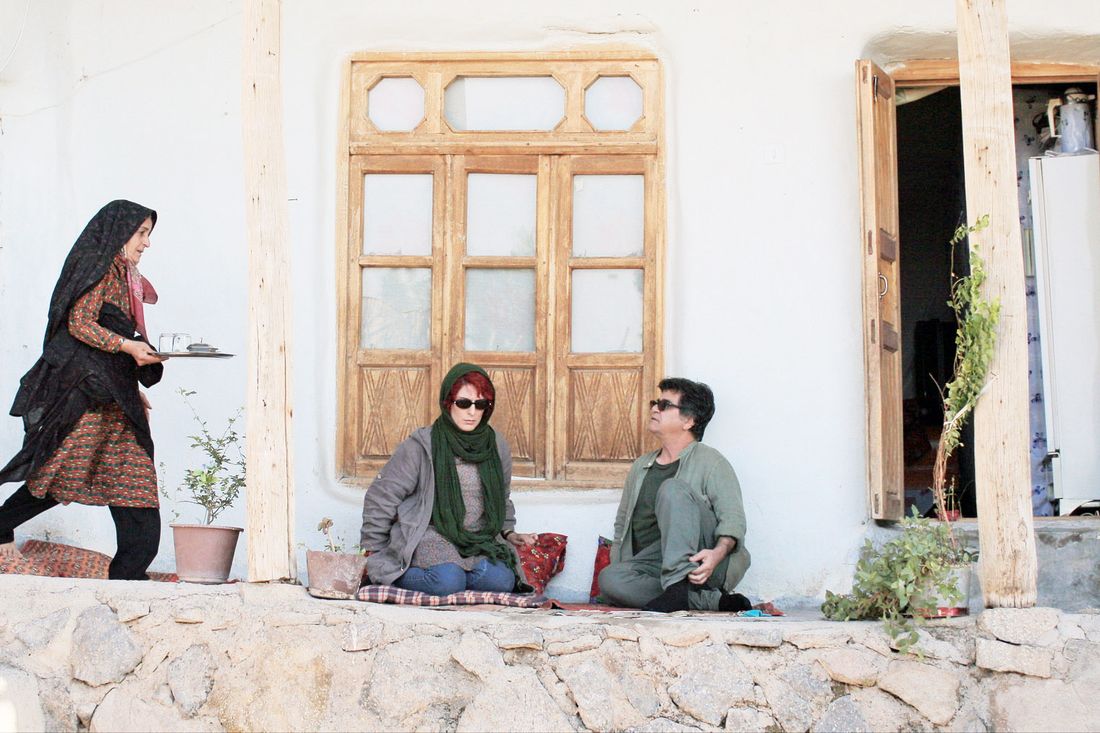
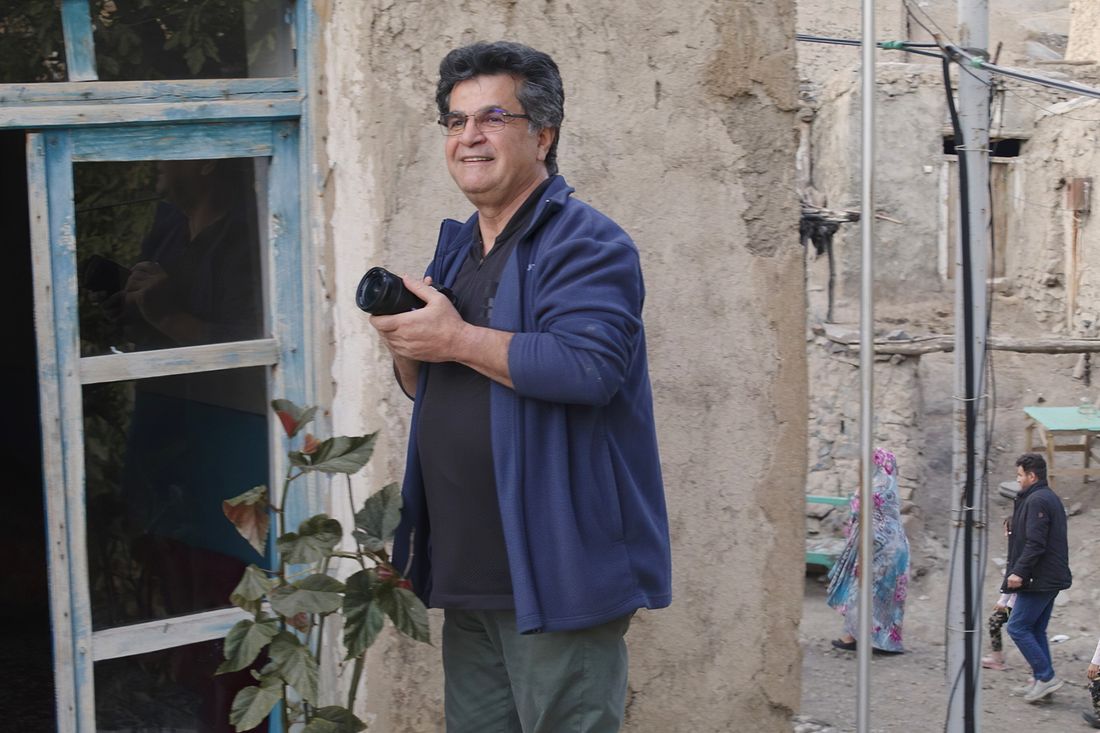
Before the Toronto premiere of *It Was Just an Accident*, director Panahi visited the Royal Alexandra Theatre to check the sound. He tested the acoustics by clapping, asked about the theater’s capacity (1,244 seats) to determine the appropriate volume, and quickly identified specific scenes for review using time codes. He was especially focused on making sure the sound of footsteps was clear, even with a full audience. During a screening of three scenes, he repeatedly adjusted the volume with the theater’s technicians, emphasizing that the film relies entirely on sound effects, not music. He also asked them to check the image quality, finding it slightly dim. After a few adjustments, raising the volume to 7.5, Panahi was pleased with the result, particularly how powerful and distinct the sound of birds taking flight now was. He felt the audience would truly *feel* that moment.
Jafar Panahi’s filmmaking style has become remarkably simple due to the circumstances he often works under. He rarely uses artificial lights, and typically shoots with a small camera. According to Amin Jafari, the cinematographer for *It Was Just an Accident*, *3 Faces*, and *No Bears*, this natural approach results in a more authentic feel. Panahi meticulously plans each scene, usually needing only two or three takes. He works with a lean crew – a cinematographer, editor, camera operator, sound recorder, and the necessary actors – and streamlines the process by editing footage as he films, allowing him to complete his movies quickly.
Recurring themes in his later work include cars on desolate roads, nighttime settings, and scenes filmed in cramped spaces, creating a sense of secrecy. This sense of confinement extends to his storytelling, where characters’ movements are limited, and the significance of boundaries is questioned. His 2022 film, *No Bears*, exemplifies this. In it, Panahi travels to a remote village and directs a film being shot across the border in Turkey using video chat. A key scene shows him meeting his assistant director, Reza Heydari, at night on a hilltop with Turkey visible in the distance. Panahi asks where the border lies, and Reza replies that he’s standing on it, prompting Panahi to step back. Though no one is physically policing him, the imaginary line holds power over him, suggesting that the perceived truth is shaped by how much belief is invested in the illusion.
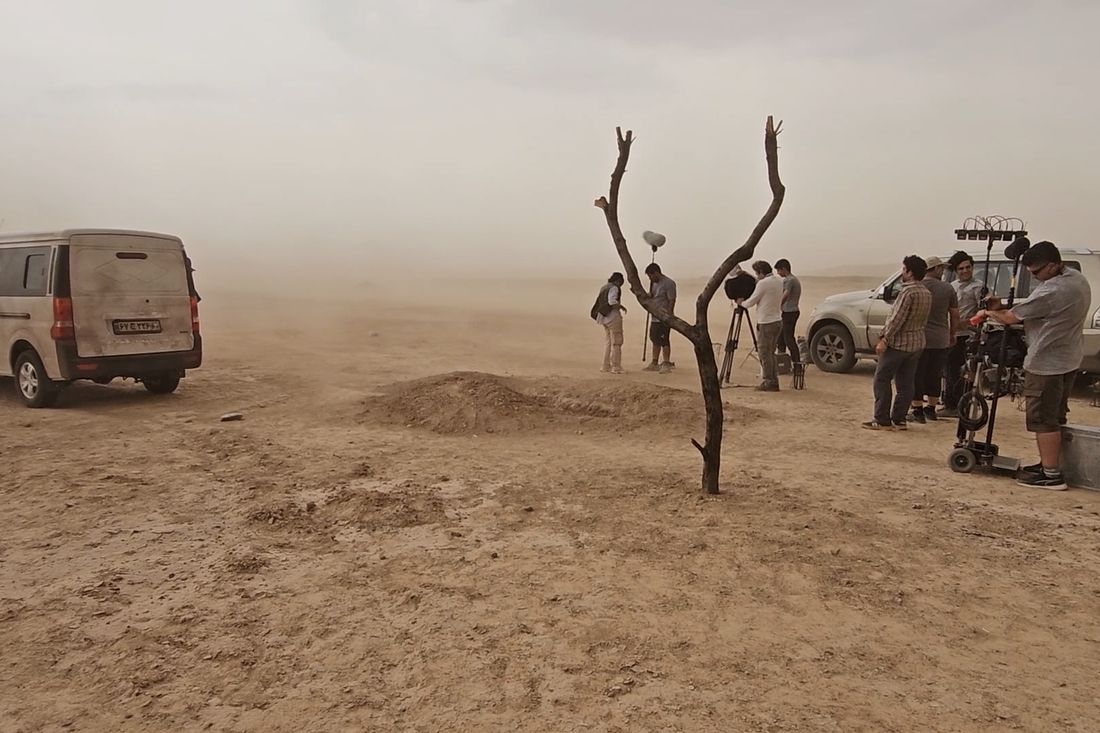
Jafar Panahi’s second imprisonment at Evin Prison served as the inspiration for his film, *It Was Just an Accident*. He was arrested again in July 2022, during a period of growing unrest in Iran. This unrest stemmed from worries about the economy, resources, and excessive development, and later escalated into the “Woman, Life, Freedom” protests following the death of Mahsa Zhina Amini, a 22-year-old woman who died in custody after being arrested for improperly wearing her hijab. Filmmakers Rasoulof and Mostafa al-Ahmad had recently been arrested for voicing support for the protests online. When Panahi went to the prosecutor’s office to inquire about their detention, he too was arrested and ordered to serve a six-year sentence originally issued in 2010. Panahi explains that a law prevents sentences from being carried out after ten years, and he was released after a hunger strike in February 2023, having been held illegally for seven months.
This time, Panahi was held in a larger cell with a diverse group of prisoners, some of whom had been in Evin Prison for many years. He describes forming strong bonds with the other inmates, especially filmmakers Rasoulof and journalist/activist Mehdi Mahmoudian, who reported on Iran’s prisons. They spent their time together watching smuggled films, talking, and even dealing with a bedbug infestation. Surprisingly, the guards, some of whom were film enthusiasts, approached them with a request: they wanted Panahi and Rasoulof to make a movie within the prison. When the filmmakers said they needed a cameraman, a guard jokingly offered to arrest one for them.
After his release from prison, Panahi was immediately aware of the “Woman, Life, Freedom” protests happening in Tehran, a strange experience after being locked up. He spent months worrying about the friends he’d left behind, wondering what to do next with everything he’d witnessed and heard. The idea for a new film began to form during a trip with friends Nader Saeivar and Shadmehr Rastin. The concept revolved around the unsettling possibility of encountering—and recognizing—one’s former interrogator in public. Apparently, Panahi explored a similar theme around 15 years earlier with his adaptation of Ariel Dorfman’s play *Death and the Maiden*, which tells the story of a woman who believes she’s found her torturer and takes revenge. He’d intended to start this new film after completing *Offside* and was even preparing to travel to Paris to meet with producers when he received his first prison sentence at Evin, effectively ending the project.
I was really struck by Jafar Panahi’s *It Was Just an Accident*. It reminded me a lot of *Death and the Maiden*, but with its own unique power. The film centers around Vahid, Shiva, Golrokh, and Hamid – former prisoners who, along with Golrokh’s fiancé Ali, take a man named Eghbal. Vahid believes Eghbal was the one who tormented them in prison, and they recognize him by the distinct sound of his prosthetic leg. But what’s so compelling isn’t really *what* they do to him, but the raw, simmering anger they all carry about what prison took from them. It’s about how that experience warped their understanding of justice, and each character grapples with it differently. Panahi creates these incredible scenes with layers of dialogue, a constant back-and-forth debate that feels so real. I also learned that Mahmoudian, a journalist Panahi met while imprisoned, helped shape the dialogue, especially the interrogator’s lines. Apparently, he had a deeper understanding of these types of people, having experienced the system firsthand, and that really came through in the film.
The cast of *It Was Just an Accident* largely consists of non-professional actors or people who act as a hobby. Director Jafari believes his unconventional filming style actually helps these newcomers. He explains that big film equipment can make actors feel self-conscious, but Panahi consistently encourages them to be natural. Panahi discovered his lead actress, Maryam Afshari, through Saeivar. Afshari, a karate referee and coach, had briefly appeared in Saeivar’s 2024 film, *The Witness*, where Panahi served as a consultant. Impressed by her on that set, Panahi reached out to Afshari, who immediately left work at the Karate Federation to meet with him. Afshari says working with Panahi was a long-held dream. He showed her the script and gave her 24 hours to decide if she wanted the role – an offer he extended to all the actors. She says she accepted immediately.
As a movie lover, I was deeply moved by the story behind this film and especially by the actress, Afshari. She wasn’t just *playing* a role; she *lived* through the Woman, Life, Freedom movement. She was actually injured during the protests – beaten, shot at, even thrown into a van – and rescued by others. That personal experience really informed her portrayal of Shiva, a woman trying to move forward. Seeing Afshari as Shiva is incredible – she embodies this quiet strength and tries to be reasonable, even when it’s incredibly difficult. She told me she kept thinking about Nika Shakarami, a 16-year-old girl murdered during the protests, and imagining herself in that van, facing the same fate. It fueled her performance, and she admitted to feeling an overwhelming rage, saying she’d likely tear her attackers apart if she had the chance. It’s a raw, honest performance born from real trauma and anger, and it really stays with you.
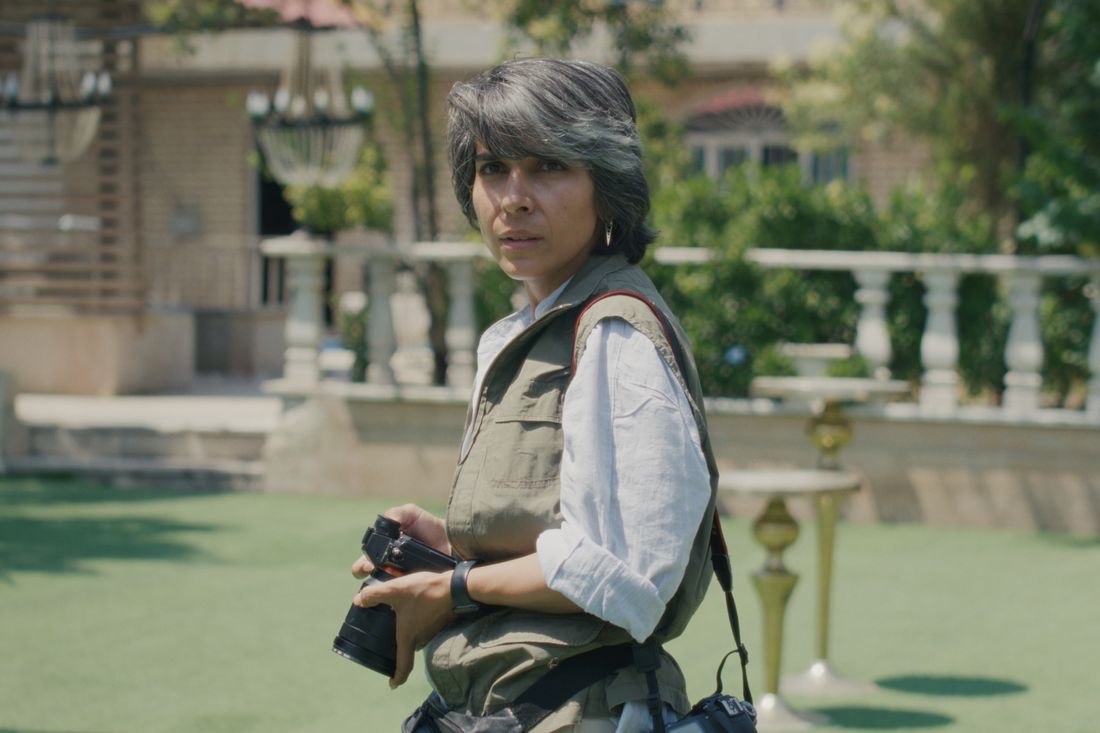
Jafar Panahi’s film, *It Was Just an Accident*, was shot over about a month in Tehran, primarily in a desert and inside a van where the blindfolded and tied-up character Eghbal was kept. Some key scenes also took place on the busy streets of the city. According to producer Mohammadreza Akrami, Panahi is known for filming in public spaces in Iran, blending into the surroundings. However, the production was unexpectedly raided by police while filming in the Shahrak-e Gharb neighborhood in the summer of 2024. The source of the leak remains a mystery – perhaps filming in the same spot for a second day gave them away, according to co-writer Navid Jafari – but Panahi and his team were ready. They quickly handed over an empty memory card. Fortunately, editor Amir Etminan had already saved all the footage on his laptop, hidden in the car along with some prop cameras used by a character in the film. When the police searched the car, Etminan cleverly pretended to fiercely protect the prop cameras, convincing them they contained valuable footage. The police left with the empty card and the props, leaving the laptop untouched. The crew waited almost three weeks before completing the final three days of filming.
The film *It Was Just an Accident* quickly shifts between characters debating revenge. A long desert scene features the camera focusing on each person, either alone or in pairs, as they argue and reveal their motivations. Hamid is determined to kill Eghbal, but his ex-partner, Shiva, argues the problem lies with the flawed system itself, declaring, “These scumbags created the system!” Everyone, including Eghbal, gets a chance to share their perspective. The director, Mahmoudian, says this reminded him of an experience in Evin prison this past June, shortly before his release on September 15th. Following an Israeli bombing of Iran, a brief war erupted, resulting in over 1,200 Iranian and 31 Israeli deaths. The worst attack occurred at Evin prison, killing around 80 people – an event some consider a war crime. Mahmoudian explains that this happened while they were committed to nonviolent resistance. Despite the danger, prisoners rescued their captors from the rubble, even tending to their injuries. However, not everyone reacted with compassion. While some guards appreciated the help, others – those who had just been pulled from the debris and treated – immediately opened fire on their rescuers.
I was following Jafar Panahi’s journey to the premiere of his latest, *It Was Just an Accident*, and it felt like watching a film within a film. Even the ride there was telling – a quick stop for cigarettes, arranged by his publicist, felt like a small act of defiance. On the red carpet, looking sharp in a cream suit, Panahi fielded a question from BBC Persian about the audience’s laughter during the screening. He explained it wasn’t accidental – the humor was deliberate, a statement that Iranians won’t let the regime steal their joy. And the audience *did* laugh, heartily, especially during a wonderfully chaotic van scene. You could see Panahi genuinely pleased when a joke landed. Technically, the sound mix in the theater was spot-on, but it was the film’s themes that truly resonated. It cleverly echoes elements from Panahi’s past work, like a worried child and a pregnant mother, but what’s most powerful is the film’s central question: who *is* Iran? Is it just what the government says it is, or does it belong to the people who live there, even those who disagree with the regime? It’s a question the film keeps returning to, and it’s a question that lingers long after the credits roll.
Viewers everywhere can connect with the questions raised by this film. After it ended, the people behind me immediately started a lively debate about the characters’ choices and the meaning of the final scenes – the film doesn’t offer easy answers about whether taking the law into your own hands is justified. Panahi seems more interested in capturing a specific moment – a turning point – not just for Iran, but for all of us. He explains, “You’ll wonder how a government with so much power could let a film like this be made. But being on the inside, I know how to navigate the system, how to find the loopholes and work around obstacles.” He believes this film is for a future that hasn’t happened yet – a time we haven’t lived through.
Read More
- Lacari banned on Twitch & Kick after accidentally showing explicit files on notepad
- YouTuber streams himself 24/7 in total isolation for an entire year
- Adolescence’s Co-Creator Is Making A Lord Of The Flies Show. Everything We Know About The Book-To-Screen Adaptation
- Gold Rate Forecast
- The Batman 2 Villain Update Backs Up DC Movie Rumor
- 2026 Upcoming Games Release Schedule
- Answer to “A Swiss tradition that bubbles and melts” in Cookie Jam. Let’s solve this riddle!
- Save Up To 44% on Displate Metal Posters For A Limited Time
- Warframe Turns To A Very Unexpected Person To Explain Its Lore: Werner Herzog
- Every Sarah Paulson Performance in a Ryan Murphy Show, Ranked
2025-10-14 13:00